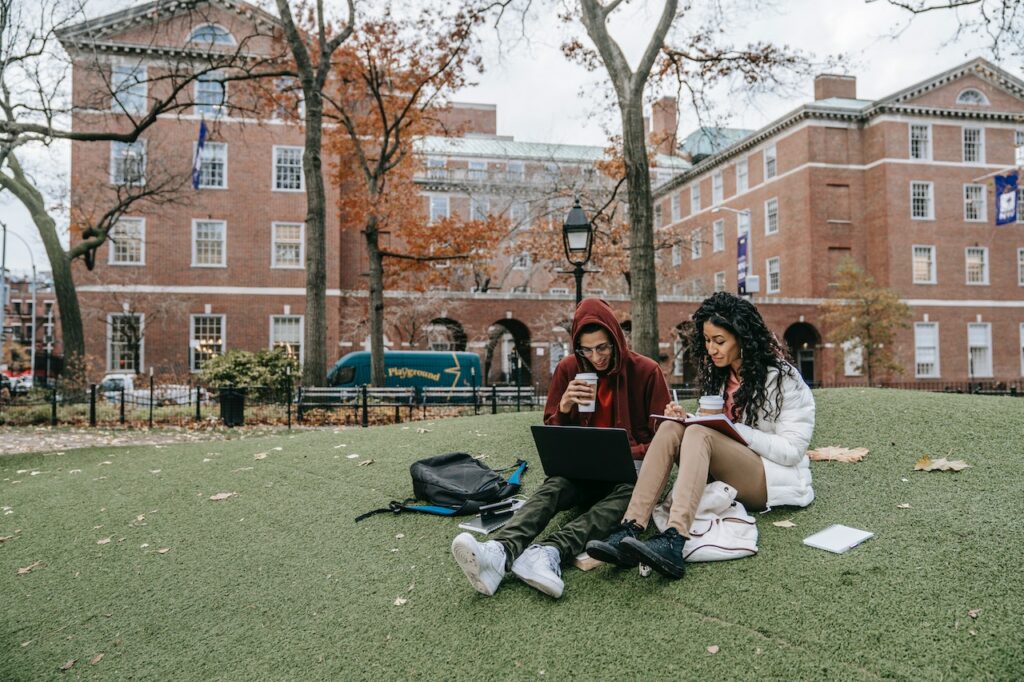In recent years, the importance of inclusivity and accessibility in education has been increasingly recognized, particularly in the context of deaf students. There’s no question that every student, irrespective of their hearing capabilities, deserves a quality education that nurtures their abilities, dreams, and career goals.
Fortunately, several colleges across the United States specialize in providing outstanding educational experiences for deaf and hard-of-hearing students. This article highlights five such colleges that have profoundly impacted this community.
Gallaudet University, Washington, D.C.
Gallaudet University is the world’s only university designed to be barrier-free for deaf and hard-of-hearing students. Established in 1864, the university has been an epicenter for deaf culture and sign language development. It offers a variety of undergraduate and graduate programs in various fields, such as arts, humanities, sciences, and professional studies.
At Gallaudet, all classes, services, and events are designed to accommodate students who communicate through American Sign Language (ASL). The university’s commitment to the growth and development of its students extends beyond the classroom, with countless research opportunities and community-building activities.
Rochester Institute of Technology’s National Technical Institute for the Deaf, New York
The Rochester Institute of Technology’s National Technical Institute for the Deaf (RIT/NTID) in New York is a premier institution for higher education that caters specifically to the needs and potential of deaf and hard-of-hearing students.
RIT/NTID was established in 1968 and is the world’s first and largest technological college for students who are deaf or hard of hearing. The institute is a pioneer in providing educational programs and access services tailored to meet the needs of these students.
NTID offers a multitude of academic programs leading to degrees in fields as diverse as business, arts and imaging studies, computer science, engineering, health sciences, and more. The goal is to equip students with the knowledge and practical skills needed to excel in their chosen careers. The institute’s programs are tailored to foster direct instruction and learning.
Most classes at NTID are taught using a variety of communication methods and technologies, including sign language, spoken language (with interpreters), captioning, and more.
Furthermore, NTID students also have the opportunity to enroll in programs across RIT’s other eight colleges. You can contact their admissions office through email or phone to learn more about all this.
To ensure that its students are fully included in every aspect of university life, NTID provides a host of support services. These include sign language interpreting, notetaking, academic advising, tutoring, counseling, and assistive technology.
Additionally, the institute’s Center on Employment assists students with their career goals, offering services such as job search strategies, interview preparation, resume development, and connections with potential employers.
California State University, Northridge
California State University, Northridge, is home to the National Center on Deafness, which provides programs and support to approximately 200 deaf and hard-of-hearing students each year.
The university offers a wide range of undergraduate and graduate degree programs. With the support of NCOD, deaf and hard-of-hearing students can pursue any field of study at the university, from engineering and business to humanities and visual arts.
All students have access to high-quality education and resources, preparing them for successful careers after graduation.
NCOD provides an assortment of support services designed to ensure that deaf and hard-of-hearing students can fully participate in all aspects of campus life. These services include sign language interpreting and real-time captioning for classes and events, note-taking support, and academic advisement.
The culture at CSUN is one of diversity, inclusivity, and mutual respect. The university’s efforts to ensure an accessible learning environment for all students are evident in its support for NCOD and the services it provides.
Beyond academics, the university offers various cultural and recreational activities, promoting a rich student life experience. Deaf and hard-of-hearing students are actively involved in campus clubs and organizations, sports, and various campus events.

Southwest Collegiate Institute for the Deaf, Texas
Situated in the heart of Texas, the Southwest Collegiate Institute for the Deaf (SWCID) is a unique college offering an exceptional educational environment tailored to deaf and hard-of-hearing students.
Established in 1981 as part of Howard College, SWCID provides a vibrant bilingual (ASL and English) community that nurtures academic success and personal growth.
This approach promotes a rich educational experience, maximizing students’ learning and communication skills. The institute offers various associate degree programs catering to different interests and career goals.
If your application is declined for some reason, you can always write them an appeal letter to change their decision or fix this mistake.
To ensure that its students thrive, SWCID provides a host of support services. These include academic advising, counseling services, tutoring, and career services. The college is committed to creating a learning environment that is not only accessible but also supportive, ensuring students have the resources and guidance necessary for their success.
Beyond academics, SWCID promotes a sense of community among its students. It fosters an environment where deaf and hard-of-hearing students can interact, engage, and develop a sense of belonging.
The campus life at SWCID is enriched with cultural events, sports, and various student-led organizations that promote leadership development and camaraderie.

Ohlone College, California
Ohlone College is renowned for its Deaf Studies Division, which provides high-quality educational programs and services to deaf and hard-of-hearing students. In addition to offering comprehensive academic and career programs, the college encourages students to participate in various cultural and extracurricular activities.
The curriculum is designed to enhance the student’s understanding of the Deaf community and its culture, equipping them with the skills needed to succeed in a variety of careers or transfer to a four-year institution.
One highlight of the college’s commitment to fostering a sense of community is the annual Ohlone College SuperFest International Disability Film Festival. This event showcases films from around the world by, for, and about people with disabilities, offering a unique platform for raising awareness and promoting inclusivity.

Conclusion
Each of these colleges has shown a remarkable commitment to providing a rich educational experience to deaf and hard-of-hearing students. Furthermore, these colleges are more than educational institutions; they are hubs for celebrating and promoting Deaf culture.
Through various events, clubs, and organizations, they provide opportunities for students to express their cultural identity, build lifelong friendships, and develop leadership skills. By doing so, they contribute significantly to the mission of creating an inclusive society that respects and values the diversity of its members.
At the core of these institutions is a shared commitment to empowering deaf and hard-of-hearing students. They stand as a testament to the fact that every student can excel with the right support, resources, and opportunities.
